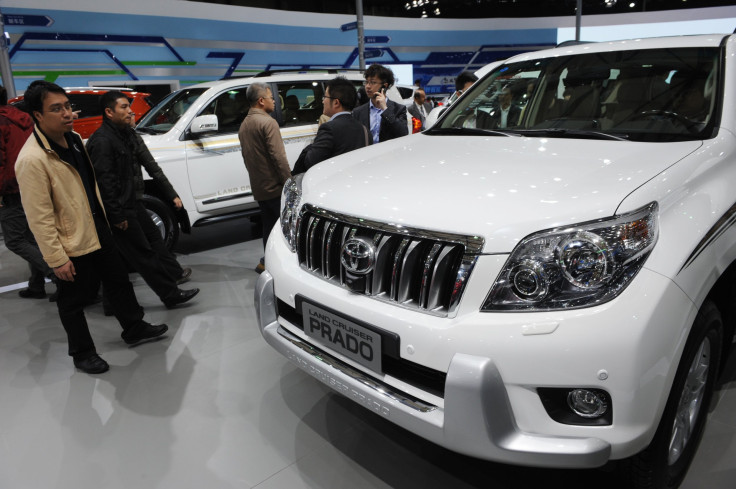Auto Sales: Chinese And US Drivers Are Ditching Sedans For Bigger, Bulkier SUVs And Trucks

Drivers in the world’s top two auto markets, China and the U.S., are increasingly ditching slimmer sedans in favor of roomier sport utility vehicles and trucks.
In China, sales of SUVs soared 52 percent in 2015, boosting the overall car market by 7.3 percent even as car and minivan sales dropped, the Associated Press reported. Bulkier vehicles are seen as safer on China’s chaotic, traffic-jammed roads. And they’ve lost some of the classist stigma earlier associated with the models.
“Ten years ago, no one wanted an SUV because it was considered to be a bulky truck for peasants,” Michael Dunne, a consultant on Chinese auto market strategy, told the AP. “Now the cool factor has kicked in and SUVs are super-hot in the China market.”
Growing appetite for bigger cars has sent foreign automakers from General Motors (NYSE:GM) and Volkswagen AG to local companies Great Wall and BYD scrambling for a piece of the action.
Detroit giant GM said healthy sales of SUVs in China helped boost its first-quarter profits, which more than doubled compared with the same period in 2015, the company reported Thursday.
“We’re growing where it counts, gaining retail share in the U.S., outpacing the industry in Europe and capitalizing on robust growth in SUV and luxury segments in China,” Mary Barra, GM’s CEO and chairman, said in a statement.
In North America, stronger SUV and truck sales also drove GM’s quarterly profits, which reached $2 billion despite a decline in U.S. market share that GM pegged to lower fleet sales.
Larger vehicles dominated America’s auto market last year as drivers bought more small, midsize and beastly SUVs and fewer four-door sedans. Part of the flip-flop is due to lower gasoline prices, which have plummeted over the last two years on falling crude oil prices.
Among the Detroit Three automakers — GM, Ford Motor Co. and Fiat Chrysler Automobiles NV — sales of small, midsize and large sedans fell by about 11 percent in 2015 compared to the previous year, according to annual sales data released by the manufacturers. Deliveries of pickup trucks and SUVs meanwhile rose 15 percent compared to 2014.
While auto analysts say the trend toward SUVs is likely to stick among U.S. drivers, the market in China is less certain. Faced with a dangerous and embarrassing smog crisis in China’s largest cities, Beijing and local governments have begun to limit new car registrations, forcing automakers to seek buyers in smaller towns, the AP reported.
Chinese brands in particular might be gambling their futures by steering most of their resources into the SUV segment, analyst John Zeng of LMC Automotive told the news organization. “That strategy is effective in the short term but in the longer term quite risky,” he said.
© Copyright IBTimes 2024. All rights reserved.





















